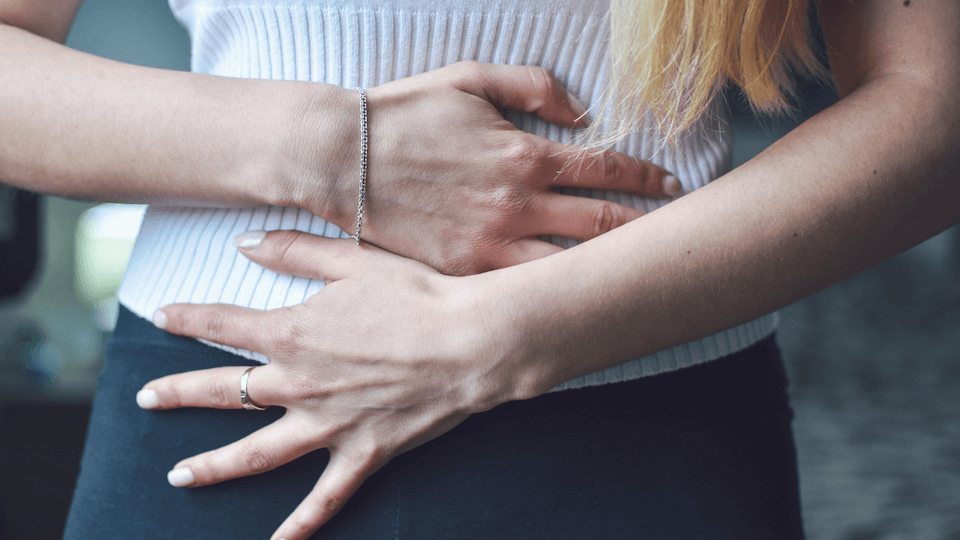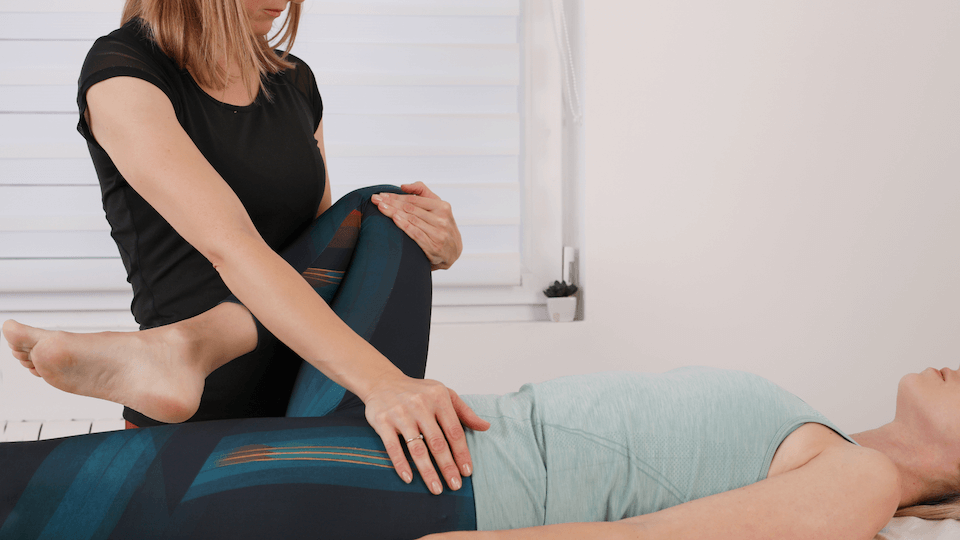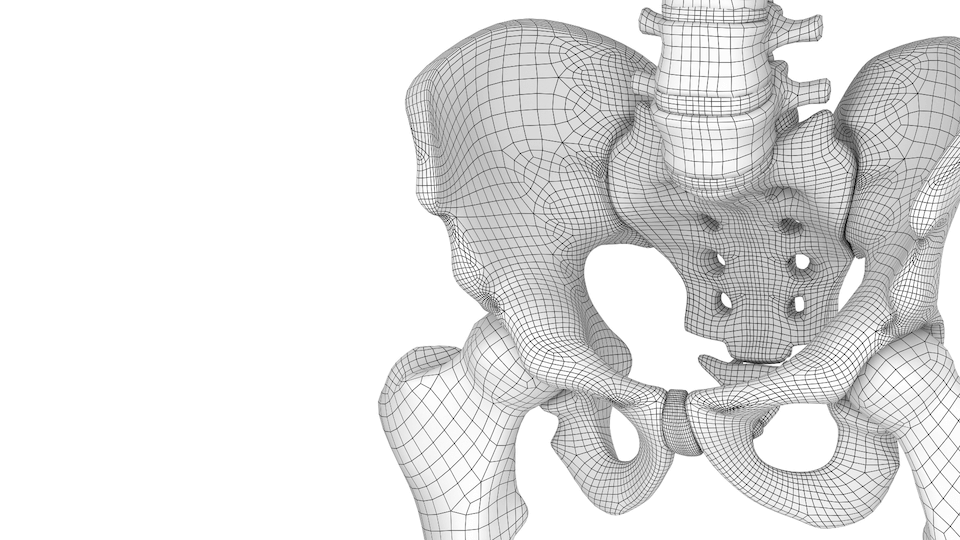Women's Pelvic Health Physical Therapy in Jacksonville, FL
Women’s pelvic health is an important topic and one that is too often overlooked or ignored due to embarrassment. One out of four women in the United States is affected by pelvic floor disorders. These disorders include bladder, bowel, and sexual dysfunction. Women who report their pelvic health symptoms also share that symptoms from pelvic floor dysfunctions have significant negative impacts on their quality of life.
Aging, pregnancy, overuse, and trauma are a few factors that affect pelvic organs, muscles, and connective tissues. If any of these systems fail, several disorders can occur as a result, such as incontinence, prolapse, or pelvic pain.

What Is Women's Pelvic Health Physical Therapy?
Women’s pelvic health includes optimal functioning and maintenance of your bladder, bowel, and reproductive systems. Your pelvic floor muscles and connective tissues support these systems that a physical therapist can treat.
- Urinary System. The urinary system includes the kidneys, bladder, ureters, and urethra.
- Digestive System. The digestive system includes all the organs between your mouth and anus: esophagus, liver, gallbladder, stomach, pancreas, large intestines, small intestines, appendix, rectum, and anus.
- Reproductive System. The reproductive system includes the ovaries, uterus, fallopian tubes, cervix, and vagina in women.
Our pelvic health physical therapists are uniquely positioned to help you regain function as they serve as movement experts.

Common Women's Pelvic Health Problems
Women can experience many issues related to their pelvic floor dysfunction, which includes the pelvic floor muscles, ligaments, and fascia that support their pelvic organs. Some conditions are often seen as expected or not bothersome enough and are left untreated.
Treatable women’s pelvic health conditions include:
- Incontinence
- Stress Urinary Incontinence. Leaking at least one drop of urine when putting pressure on your bladder during activities such as laughing, sneezing, or jumping.
- Urge Urinary Incontinence. A sudden and intense need to urinate followed by leaking on yourself.
- Mixed Urinary Incontinence. Both stress and urge urinary incontinence happen at the same time.
- Fecal Incontinence. You cannot control your bowel movements and leak stool or gas unexpectedly.
- Urinary Hesitancy. You have difficulty starting and maintaining your urine stream.
- Urinary Frequency. Urinating more than 6-8 times within 24-hours.
- Constipation. Having less than three bowel movements in a week with hard stool.
- Abdominal Pain. This type of pain may be related to any bowel, bladder, or reproductive system dysfunction.
- Postpartum Issues
- Diastasis Recti. Your six-pack ab muscles separate down the middle, usually from being overstretched, and are common in pregnant and postpartum women.
- Post-Episiotomy/C-Section Pain. After an episiotomy or cesarean section, your body will heal and form a scar, leading to restricted and weak tissue that can lead to pain or other pelvic floor disorders.
- Postpartum Musculoskeletal Disorders. Muscles and ligaments have had to carry the increased load for several months, leading to weakness and excess mobility, causing hip, knee, spine, and tailbone pain.
- Common Musculoskeletal Disorders. Hip, knee, spine, and tailbone pain are not always due to pregnancy but can be traced back to pelvic floor muscle dysfunction.
- Post-Pelvic Radiation Therapy. After radiation therapy, you can experience several side effects, including diarrhea, urinary changes, and soft tissue scarring.
- Pelvic Organ Prolapse. One or more of your internal organs slips from its normal position and bulges out of your anus or vagina.
- Pelvic Pain. Pelvic pain can feel sharp, achy, burning, stabbing, or like pins and needles and is typically felt in your lower abdomen and pelvis.
- Dyspareunia. It is a medical term meaning “painful intercourse.”
- Vaginismus. Involuntary spasms during attempted vaginal penetration, such as intercourse, OB/GYN examinations, or tampon insertion, which cause you severe pain.
- Vulvodynia. You have pain or discomfort around your vulva when you touch it or not.
- Hip Pain. Dysfunction of your pelvic floor muscles can cause hip pain as they also attach to your hips.
Causes Of Women's Pelvic Health Issues
When your pelvic floor muscles aren’t working correctly or are not in coordination with other core muscles (which include your abdominal muscles, low back muscles, hip muscles, and diaphragm), a dysfunction will likely occur.
Not all dysfunctions lead to pain, but you’ll find completing normal daily activities challenging when your muscles don’t cooperate. And weakness in one area of your body can result in overuse and pain in another part of your body.
Our pelvic health physical therapists have specialized training to complete an examination which includes assessing the pelvic floor muscles. They can assess the muscles directly by internal or external examination or sight.
There are several reasons women can develop pelvic floor issues. Some include:
- Predisposing genetic factors
- Pregnancy
- Trauma
- Nerve damage
- Radiation therapy
- Radical surgery
- Constipation
- Urinary tract infections
- Chronic cough
- Occupation
- Stress
- Infection
- Smoking
- Medications
- Cancer
- Behavior
- Neurologic conditions
Several factors can occur at the same time. Our team is qualified to identify and address a wide variety of women’s pelvic health issues, including your unique situation.
How To Improve Your Pelvic Health
Society has accepted many pelvic floor disorders as a normal part of our aging process. Many women do not seek help as they believe they must learn to live with their new condition. And even when symptoms become bothersome, only half will find professional service.
Education and awareness of women’s pelvic health is the first step.
There are many tools available to help you reach your goals to reduce or eliminate your pelvis health symptoms, including internal or external techniques using:
- Prescribed exercises
- Manual therapy
- Biofeedback therapy
- Electrical stimulation

Our Pelvic Floor Physical Therapists Can Help
Your physician may or may not know to refer you to a pelvic health physical therapist. Only one-half of patients referred out to urogynecologists by primary care physicians and OB/GYN doctors have tried conservative, non-invasive therapies and education first.
It’s ok to ask your physician for a referral to physical therapy. Or, call our office now for a consultation and ask how to start the process of scheduling your first visit.
Our physical therapists can provide you with training programs and education to help you stop bowel and bladder accidents or return to pain-free living. You will learn how to:
- Exercise for strengthening or down-training muscles
- Take in proper fluids and what standard urine output is
- Create time goals to hold, or refrain, from urinating
- Resist going to the bathroom upon initial sensation to void
- Design appropriate diets to decrease urge sensations
- Regulate your frequency of voiding
- Keep notes in a voiding diary
Don’t wait for your pelvic health symptoms to worsen. You can start pelvic floor rehabilitation at any stage of healing. Our supportive staff will educate and guide you during your pelvic floor recovery. Find your solution by calling and scheduling with us today!
Our Services
- Abdominal, Bladder, Pelvic, Vaginal and Tailbone Pain
- Back and Sacroiliac (SI) Pain
- Chronic Constipation due to Outlet Obstruction
- Diastasis Recti Abdominus
- Leakage of Urine or Stool (Incontinence in Men and Incontinence in Women)
- Painful Intercourse
- Pelvic Organ Prolapse
- Post-Episiotomy/C-Section Pain
- Postpartum Physical Therapy
- Post-Pelvic Radiation Recovery
- Pregnancy Related Back/SI Pain
Pelvic Health Around The Web
- Why Every New Mom Needs Pelvic Physical Therapy
- Pelvic Floor Rehab for Erectile Dysfunction
- Understanding Pelvic Floor Dysfunction
- Treating Patients with Pelvic Floor Dysfunction
- How Women Can Heal After Childbirth
- Questions to ask your Pelvic Physical Therapist
- Painful Sex Solutions
- Common Pelvic Floor Rehab Misconceptions
- Pelvic Floor Rehab to Find Relief
- Core Pre-hab and Rehab
- Why isn’t my Doctor Telling Me About Pelvic Floor Physical Therapy?
